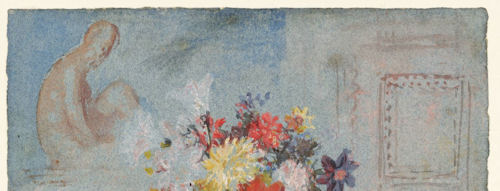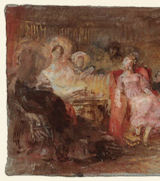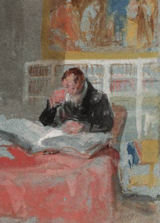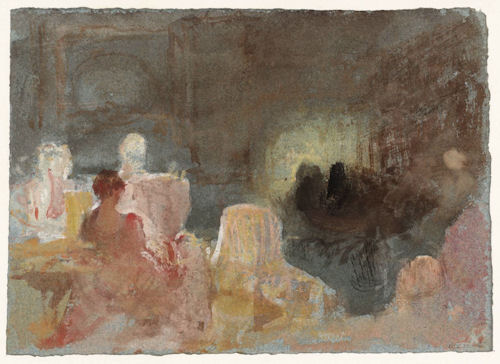




In the Main Did Darcy Lie to Himself? Or Only to Jane Austen webpages, I examine Jane Austen's Pride and Prejudice by comparing it closely to Architecture while acknowledging the manner in which the best Film treatments broaden and deepen our understanding of the Novel. I broke off at the end of Volume I, by which time the webpages seemed to require at least a mention of her other works. Any attempt by me, however, to bring in those other Novels to the Main section seemed to create confusion rather than enlightenment, possibly because each Novel differs so greatly from the other;
I still believe that a discerning reader will end with greater appreciation of Pride and Prejudice by studying the ways in which that Masterpiece differs from her other writing and so I decided to divide the entire presentation into these two sections;
In a previous chapter of the present section [The Seven Very Different Novels of Jane Austen], I express my bewilderment at the failure of the other Novels to attain the stature of that first and best known work by stating:—
She [Jane Austen] can't have forgotten how to write, how to assemble the necessary elements of a Novel:—
And in the Introduction to this section [Damned with Faint Praise — Pride and Prejudice Yesterday and Today], I quote certain paragraphs from the entry Jane Austen in the Encyclopedia Brittanica, 1945 edition, including the following:—
' Although Pride and Prejudice is the novel which in the mind of the public is most intimately associated with Miss Austen's name, both Mansfield Park and Emma are finer achievements — at once riper and richer and more elaborate. '
[ The entire unedited Jane Austen entry unchanged from the 1911 edition is available online at www.1911encyclopedia.org/Jane Austen ]
It appears to me that the immediately preceding comment of necessity refers to Theme, or what a Novel is about, as opposed to Character, or Plot, or anything else.
Each Austen Novel contains its own specific theme, each different and sometimes in complete contradiction one to the other.
I've said often that I believe the theme of Pride and Prejudice to be the triumph of wit and intelligence, as well as that quality which has come to be called the courage of one's convictions. (Contrast this with Mansfield Park's insistent theme that only the truly perfect are worthy to be loved, and neither intelligence nor wit play any part in the matter. ) As for the novel said to be a finer, riper, richer and more elaborate achievement, Emma admittedly evokes no revulsion in the reader, but its theme of failure to examine one's heart is surely only a pale copy of Elizabeth Bennet's pain and mortification at discovering her similar want of self-examination. Emma is herself momentarily inconvenienced by her lack of discrimination, but Elizabeth has to accept responsibility for immense harm caused to many persons as a result of her not entirely unwarranted prejudice.
To me the difference between Emma and Pride and Prejudice is the difference between life as it is lived, with all the competing and conflicting cross-currents of opinion, distraction, and demands for our attention, as contrasted with simple contemplation of a story. There is little actual suffering in Emma, since Mr. Knightley is shown many times over to know Emma far better than she knows herself. But Pride and Prejudice never permits us to forget the vulnerability of the Bennet family, and the implacable forces underlying the circumstances surrounding Elizabeth Bennet's refusal of Darcy's proposal of marriage, and all the benefits that would accrue to her family by acceptance of even so arrogant a proposal.
Likewise Emma's mistaken assumptions about Frank Churchill are embarrassing; Elizabeth's concerning Mr. Wickham potentially lethal.
Yes, Emma's solicitude for her father is sweet, as is the resolution of the problem of his hostility to alteration, but once again indulged in at so little cost. We have only to read the final chapters of Pride and Prejudice to learn of the drastic effects of the marriage of Darcy and Elizabeth on every character in the Novel, including Mr. and Mrs. Bennet and the four remaining daughters, Aunt and Uncle Gardiner, and even Caroline Bingley and Lady Catherine de Bourgh.
In other words, Emma is a Novel to be enjoyed momentarily, while Pride and Prejudice is a Masterpiece to be savoured forever.
The next few comments of the Encyclopedia refer incontrovertibly to Character:—
' But the fact that Pride and Prejudice is more single-minded, that the love story of Elizabeth Bennet and Darcy is not only of the book but is the book (whereas the love story of Emma and Mr Knightley and Fanny Price and Edmund Bertram have parallel streams), has given Pride and Prejudice its popularity above the others among readers who are more interested by the course of romance than by the exposition of character.
' Entirely satisfactory as is Pride and Prejudice so far as it goes, it is, however, thin beside the niceness of analysis of motives in Emma and the wonderful management of two housefuls of young lovers that is exhibited in Mansfield Park. '
The following are some of the characters chosen by Jane Austen to illustrate Pride and Prejudice's theme of intelligence and wit, beginning with Elizabeth and Darcy:—
... [Elizabeth impatiently]
'... I wonder who
first discovered the efficacy of poetry in driving away love!'
'I have been used to consider poetry as the food
of love,' said Darcy.
'Of a fine, stout, healthy love it may. Every thing
nourishes what is strong already. But if it be only a slight, thin sort
of inclination, I am convinced that one good sonnet will starve it
entirely away.'
Darcy only smiled ...
Pride and Prejudice, Volume I Chapter Nine
' Nothing is more deceitful,' said Darcy, 'than the appearance of humility. It is often only carelessness of opinion, and sometimes an indirect boast.'
Volume I Chapter Ten
Mr. Bennet, of course, but also Aunt Gardiner:—
' [Mr. Bennet] turned to [his eldest daughter Jane],
and said:
'You are a good girl ... I have not a doubt of your doing
very well together ... You are each of you so complying, that nothing
will ever be resolved on; so easy, that every servant will cheat you;
and so generous, that you will always exceed your income.'
Volume III Chapter Thirteen [Ch. 55 of 61]
[Letter from Mrs. Gardiner to her niece
Elizabeth Bennet:—
' Will you be very angry with me, my dear Lizzy,
if I take this opportunity of saying (what I was never bold
enough to say before) how much I like [Mr. Darcy] ... His
understanding and opinions all please me; he wants nothing
but a little more liveliness, and that,
if he marry prudently, his
wife may teach him. I thought him very sly;— he hardly
ever mentioned your name. But slyness seems to be the
fashion. '
Volume III Chapter Ten [ch. 52 of 61]
And Caroline Bingley, whose undoubted intelligence and wit are soured by jealousy (warranted) and a possessiveness toward Darcy both frantic and utterly irrational:—
Miss Bingley saw, or suspected, enough
to be jealous ... She often tried to provoke Darcy into
disliking her guest, by talking of their supposed marriage,
and planning his happiness in such an alliance:—
'I hope,' said she ... 'you will give your
mother-in-law a few hints, when this desirable event takes
place, as to the advantage of holding her tongue; and if
you can compass it, do cure the younger girls of running
after the officers. — And, if I may mention so
delicate a subject, endeavour to check that little something,
bordering on conceit and impertinence, which your lady
possesses.'
Volume I Chapter Ten
And Mr. Wickham, more cunning than intelligent, more ingratiating than witty.
There could be no conversation in the noise of Mrs. Philips's supper party, but [Mr. Wickham's] manners recommended him to every body. Whatever he said, was said well; and whatever he did, done gracefully. Elizabeth went away with her head full of him.
Volume I Chapter Sixteen
And at the other extreme — because, of course, characers to illustrate a theme's opposite also must be supplied — we have a magnificent panoply of unintelligence and tedium, from the hateful stupidity of Mrs. Bennet, the obsequious good-humoured silliness of Mr. Collins, the foolish overweening arrogance of Lady Catherine de Bourgh;
As well as the thick-headedness of Sir William Lucas, endearingly blind and deaf to Darcy's sarcasms;
And others too diverse to enumerate, although mention must be made of Sir William's daughter Charlotte, ordinarily perceptive and clear-sighted, but for the sake of home and husband ready to make the ugly compromises so repugnant to her friend Elizabeth Bennet:—
'Engaged to Mr. Collins! my dear Charlotte, —
impossible!' ...
'I see what you are feeling,' replied
Charlotte, — ... 'So lately as Mr. Collins was wishing to
marry you. But when you have had time to think it all over, I hope
you will be satisfied with what I have done. I am not romantic,
you know. I never was. I ask only a comfortable home ...'
Volume I Chapter Twenty-two
Not quite only a comfortable home, as even before the marriage Charlotte begs Elizabeth to visit her at the Parsonage in Hunsford, an invitation Elizabeth
could not refuse, though she foresaw little pleasure in the visit.
Volume II Chapter Three (ch. 26 of 61)
In fact, by the time she is ready to set out on the journey to stay with the Collinses, Elizabeth declares herself vexed with an entire group of young men in general:—
'I am sick of them all. Thank Heaven! I am going tomorrow where I shall find a man who has not one agreeable quality, who has neither manner nor sense to recommend him. Stupid men are the only ones worth knowing, after all.'
Volume I Chapter Twenty-seven
The constantly shifting circle of characters surrounding her is always closely examined by Elizabeth, not merely as personalities affecting and impinging upon her comfort, but as distinct individuals interacting with those about them. At Lucas Lodge, for example, Mary Bennet observes in her pedantic way that,
'... A person may be proud
without being vain. Pride relates more to our
opinion of ourselves, vanity to what we would have
others think of us.'
'If I were as rich as Mr. Darcy,' cried
a young Lucas, who came with his sisters, 'I
should not care how proud I was. I would keep a
pack of foxhounds, and drink a bottle of wine every
day.'
'Then you would drink a great deal more
than you ought,' said Mrs. Bennet; 'and if I were to
see you at it I should take away your bottle directly.'
The boy protested that she should not; she continued
to declare that she would, and the argument ended only with the
visit. '
Volume I, Chapter Five
This scene, minutely observed and described, occupies only a tiny portion at the end of Chapter Five of Pride and Prejudice's 61 chapters. And yet it contains such a wealth of information about the characters of the three persons involved (and the ironic enjoyment of the observer) that the use in the Encyclopedia Britannica of the descriptive word thin has to be considered as infected by malice (assuming that the writer actually read the book, which I doubt), rather than guided by honest analysis.
The same is true for the claim that
' the love story of Emma and Mr. Knightley and Fanny Price and Edmund Bertram have parallel streams. '
It's probable there is sufficient nourishment in the parallel streams of Emma to keep watered Mr. Knightley's strawberry beds at Donwell for a summer's season; it's even possible — though unlikely — that those parallel streams might contain a day's supply of water for Mansfield Park's lawns and plantations, bitter fruit of Antigua's slave trade.
But in Pride and Prejudice we find spiritual wellsprings tapping deeply into the earth to meet with mighty hidden underground rivers that rush out to join History's vast oceans of works of literary and artistic excellence. I certainly don't exclude Fairy Tale and Myth in that category of excellence, which is why I have spent more hours than I care to count in finding that perfect Fairy Tale as forerunner to Pride and Prejudice, and describing the reasons for my choice in my earlier webpage: – Fairy Tale and Myth: East of the Sun and West of the Moon and Pride and Prejudice.
I've placed these present remarks under Characters in this present section, although the Fairy Tale description might be said to relate as much if not more to Plot.
Plot, in which theme and characters are called upon to reveal their essence by action and reaction; by thought, and word, and deed, meticulously examined and described.
' No other novelist has so concerned herself or himself with the trivial daily comedy of small provincial family life, disdaining equally the assistance offered by passion, crime and religion. '
Encyclopedia Brittanica, 1945, entry unchanged from 1911
She may have been concerned with 'trivial daily comedy', but no high-ranking general planning a military expedition to the farthest reaches of the empire outdoes Jane Austen when it comes to ruthless attention to detail in plotting her greatest Novel. Every eventuality in later hostile climes has been foreseen, foreshadowed, and foretold; all the troops and officers have been assembled to mark time at the starting point; and only after the entire campaign has been furnished with adequate provisions, munitions and supplies does the army lurch into action.
Once in motion, however, the Plot moves forward with ponderous but inexorable force to its preordained conclusion. And when planning turns to execution, every warning blithely disregarded in preparatory early chapters will be proven warranted, every arrogant pronouncement destined to drown its speaker in mortification and humbled pride, and every seemingly minor event shown to be an essential component of the plot. (Even in the inconsequential, but highly amusing, Lady Susan, one simple line inserted into the second letter presages the means by which the machinations of that wicked eponymous female will meet with disappointment, if not justice).
In Pride and Prejudice the shift between preparation and action, between Meryton and the Parsonage at Hunsford, is somewhat oblique and hidden by the multiplicity of characters, but in the other Novels the transition is palpable, from Mansfield Park's interruption of continual plaintive repetitiveness by sudden contrast of personality and location; to Persuasion's purposeful return of Captain Frederick Wentworth, in search of a wife other than the girl who broke off their engagement some years previously. — Or maybe not.
More than for for Theme and Character, the mechanisms of Plot have been dealt with in the main Did Darcy Lie? section of this website, and the remainder of my reflections on Pride and Prejudice and Plot have been necessarily contained in Introduction 3B to the present Austen Novels section, beginning with the words Two hundred years of muted contempt — 'necessarily' in that such reflections are offered in reaction to passages like those cited above from the entry for Jane Austen in the 1945 Encyclopedia Brittanica.
Also, of course, these entire present Pride and Prejudice webpages are here merely for purposes of comparison with the other Austen Novels, and I will undoubtedly have much to say when it comes to Plot, Pride and Prejudice and those other Novels.
In the next webpage we'll take a moment to examine the Deadly Sin of Pride, with all its illusions, deceptions, and inconsistencies.
Details of and links to all Austen-Novel Pictures are found in the Pictures 3B webpage, but in view of the spectacular beauty of the pictures chosen for this page I particularly wish to include a quotation from the Wikipedia entry for J. M. W. Turner.
'...
The significance of light was to Turner the emanation of God's spirit and
this was why he refined the subject matter of his later paintings ...
Although these late paintings appear to be 'impressionistic' and therefore
a forerunner of the French school, Turner was striving for expression
of spirituality in the world, rather than responding primarily to optical
phenomena ...
' The intensity of hue and interest in evanescent light not only
placed Turner's work in the vanguard of English painting, but exerted an
influence on art in France; the Impressionists, particularly Claude Monet,
carefully studied his techniques. '
from Wikipedia entry for J. M. W. Turner
The Wikipedia article is also included at greater length in my later webpage Pride and Prejudice Part 4: Architecture, and Absences
This Page:— Pride
and Prejudice Part One: Theme, Characters, Plot
 JMW Turner, 1827
JMW Turner, 1827
The Old Library: A Vase of Lilies, Dahlias and Other Flowers 1827
Medium: Watercolour and bodycolour on paper;
Support 139 x 188 mm
Collection: Tate, Accepted by the nation as part of the Turner Bequest 1856
View by appointment at Tate Britain's Prints
and Drawings Room
Reference D22685
 JMW Turner, 1827
JMW Turner, 1827
The Lady in Pink: Conversation in the White Library 1827
Medium: Gouache and watercolour on paper;
Dimensions: Support 141 x 194 mm
Collection: Tate, Accepted by the nation as part of the Turner Bequest 1856
View by appointment at Tate Britain's Prints
and Drawings Room
Reference D22688
 JMW Turner, 1827
JMW Turner, 1827
Title: A Man Seated at a Table in the Old Library
Medium: Gouache and watercolour on paper;
Dimensions: Support 141 x 191 mm
Collection: Tate, Accepted by the nation as part of the Turner Bequest 1856
View by appointment at Tate Britain's Prints
and Drawings Room
Reference D22691
 JMW Turner, 1827
JMW Turner, 1827
Fire-light and Lamp-light 1827
Medium: Gouache and watercolour on paper;
Dimensions: Support 139 x 193 mm
Collection: Tate, Accepted by the nation as part of the Turner Bequest 1856
View by appointment at Tate Britain's Prints
and Drawings Room
Reference D22703
________________________